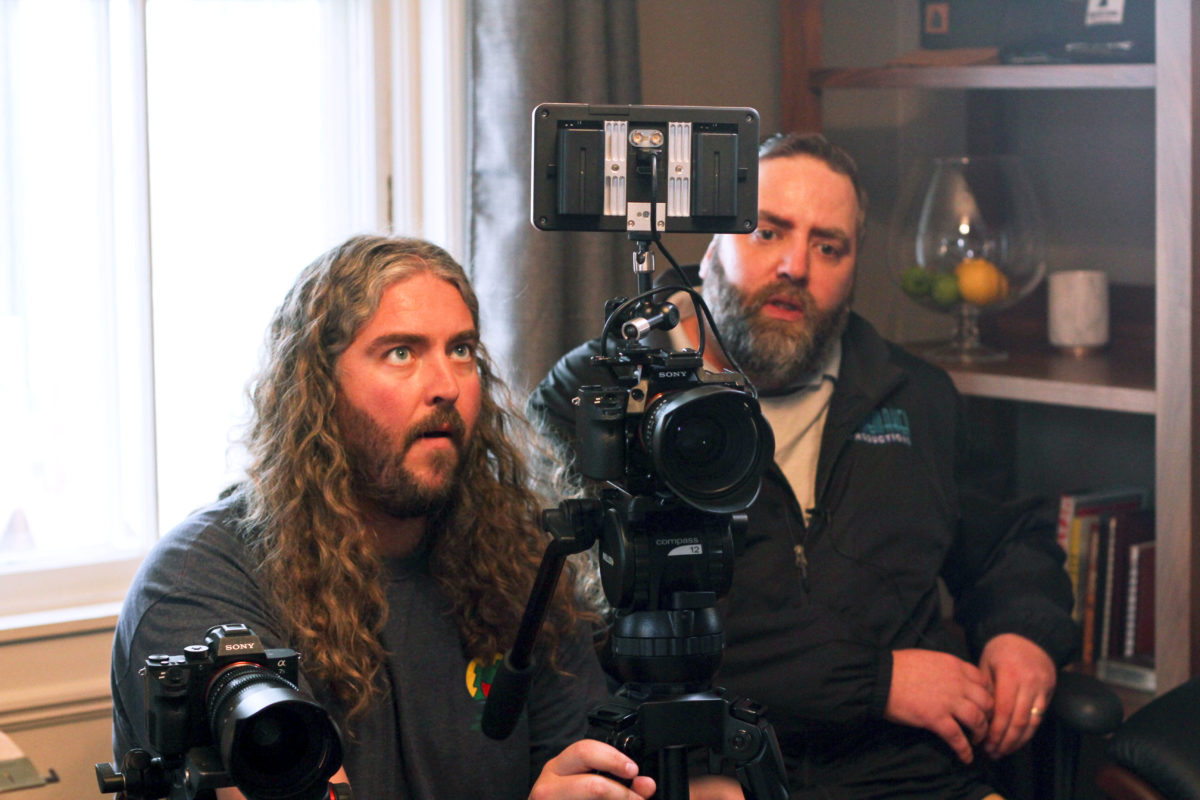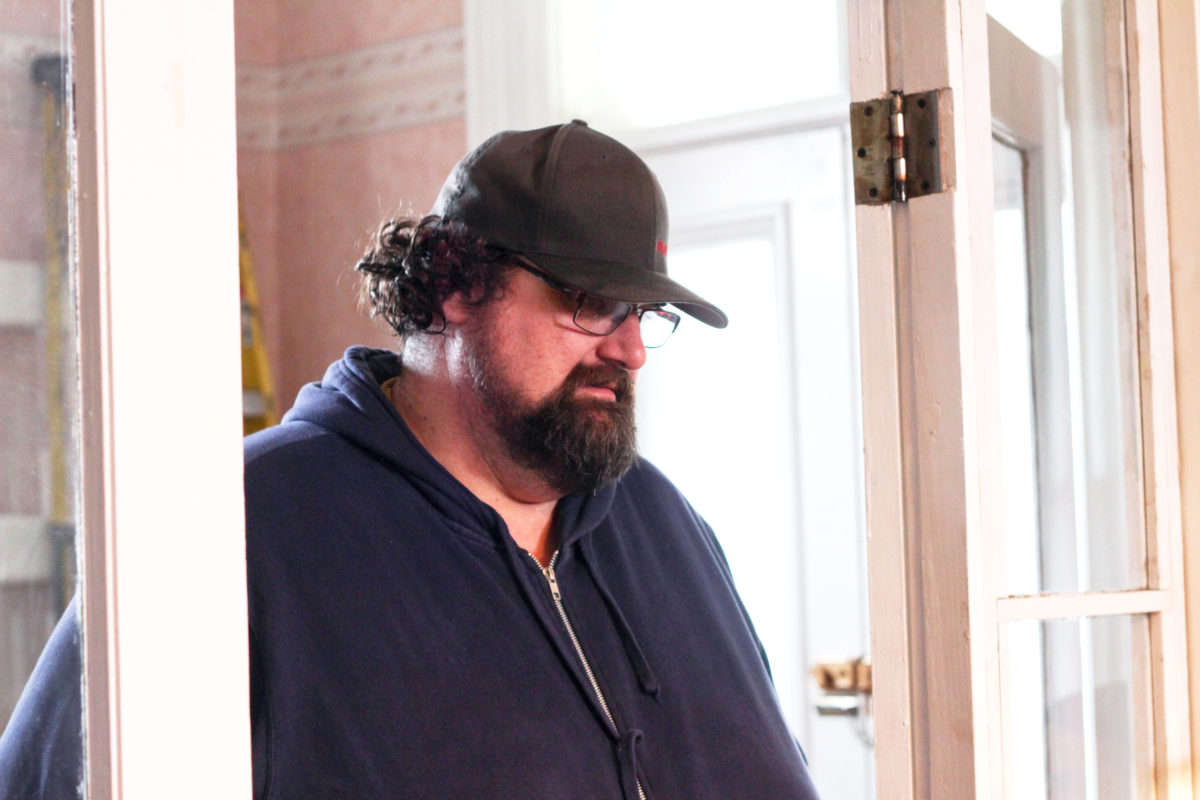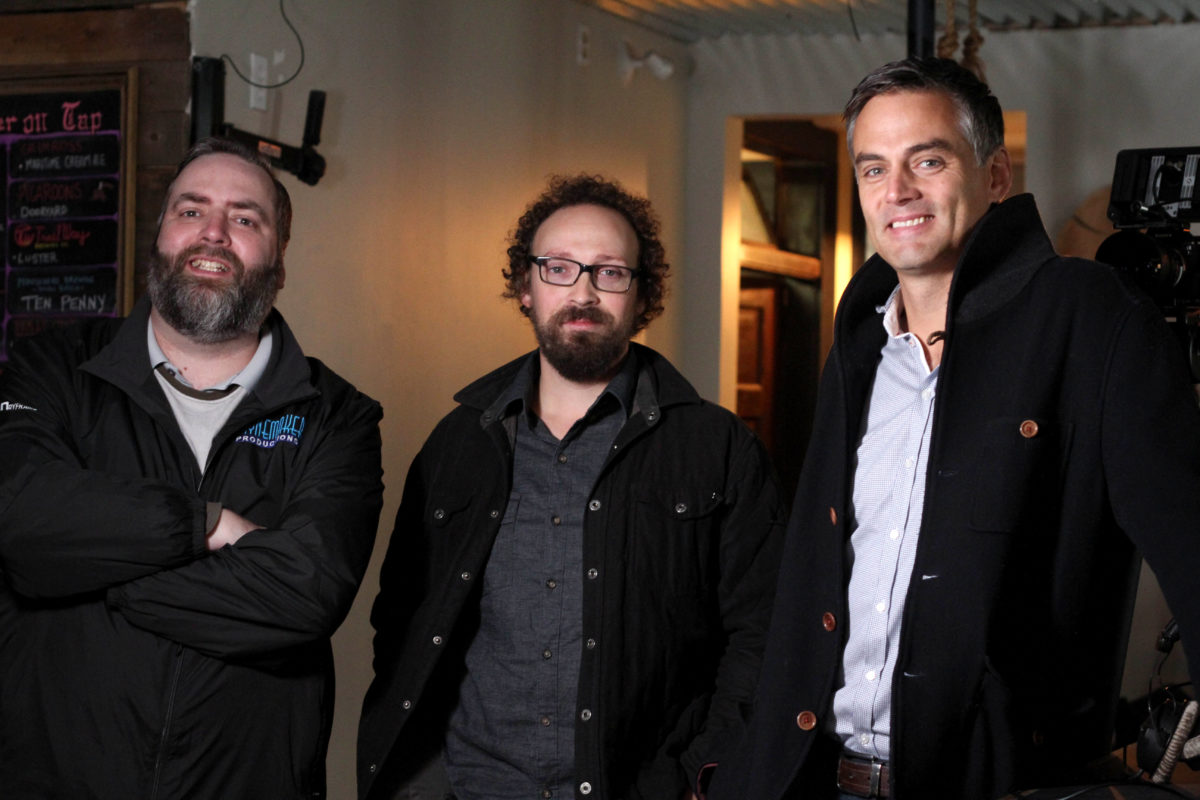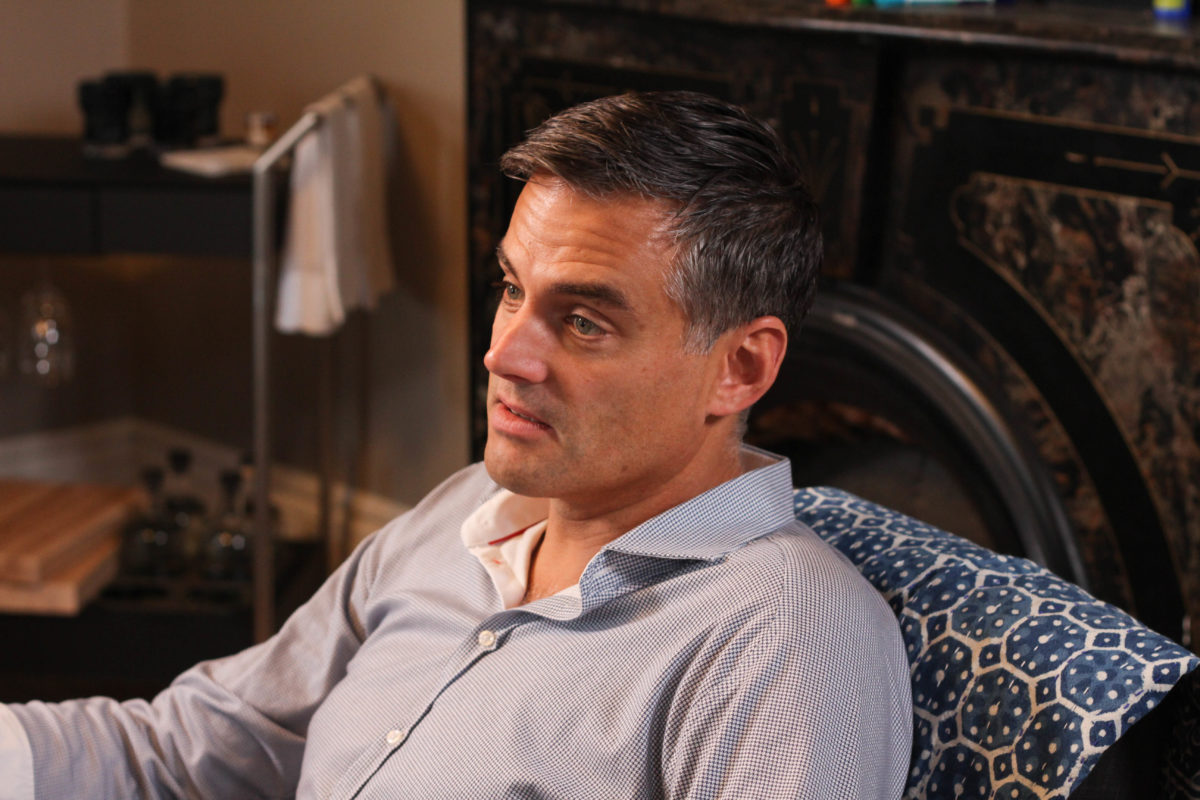

After almost two years of filming, the music documentary The Capital Project is nearly complete.
On Oct. 30, in a fairly empty house next to Graystone Brewing downtown, film director Tim Rayne alongside Arthur Thomson, Bruce LeGrow and Andrew Bravener set up one of their last shoots, an interview with Wes Ward, the owner of The Capital Complex and Graystone.
“[I hope The Capital Project] shows everyone how great [Frederictonians] are, that we can celebrate ourselves and that I’m proud of where I’m from and I’m proud of the people in it,” said Rayne, a 2003 St. Thomas University graduate.
“That’s not hokey, that’s just how I feel, I think it’s more punk rock for me to say that than not.”
The two-and-a-half-hour-long documentary screened for the first time in April, but it still isn’t quite finished. Rayne and his crew have filmed more than 100 interviews and live performances with bands and artists since February 2017.

“I’d say we probably have two to three things left we want to get. Some choir stuff, some pipe band music and some [younger] hip-hop that we’re working out. When that’s done, theoretically, I will be completed my production elements,” Rayne said.
Rayne showed the film for the first time six months ago even though he knew it wasn’t coming out for a while. He wanted people to see themselves on the screen and get excited about the project.
“I recognize that most people in this community aren’t used to production. People think, ‘Oh you’re going to shoot it, [so] I’ll see it next week,’ or ‘I’ll see it in a month,’ but this is a pretty epic series,” Rayne said.
“It’s like 10 hours long, so it takes years to not only get all the information but to process it, render it and edit it.”
Rayne graduated from STU with a double major in English and psychology. He went to grad school in Ottawa for film studies, then came back to Fredericton and started working at the CHSR radio station in 2009.


At CHSR, Rayne got a chance to work with young people from the music community and that’s where his idea for The Capital Project came from.
“It wasn’t until I got to CHSR I realized how strong the scene was and I realized no one knows about it,” Rayne said.
“For me, this is my way of letting everyone know.”
Locally, Rayne wants The Capital Project to create a sense of confidence and empowerment for the artists. He wants others, globally, to see what’s happening in Fredericton.
“I hope that people in Fredericton can be proud of where they’re from and be proud of their neighbours and the people around them. There’s something unique to this place.”


Rayne cut the two-and-a-half-hour-long documentary to an hour to be shown at the Atlantic International Film Festival in Halifax on Sept. 14.
It was originally created to be released as a television series because he initially thought no one would be interested in a long form film. But now, Rayne is reorganizing it in his head to be just that.
The format of The Capital Project ultimately depends on who takes on the project – which may be decided sooner rather than later.
“A couple broadcasters approached us [at the film festival] showing interest and asked us if we would be interested in having the films shown on their channels and we’re waiting right now to find out what that is,” Rayne said.


“So I’m actually back editing trying to make the long form. It’s going to take me probably until January to even get that [finished].”
People can watch the hour version of The Capital Project at the Silver Wave Film Festival in Tilley Hall at the University of New Brunswick on Nov. 11.
“I wish everyone was in the editing room with me and they could see the smile on my face when I’m actually working with their music . . . if they could see how happy it makes me to see their music on screen, I think that’s why I do it.”
